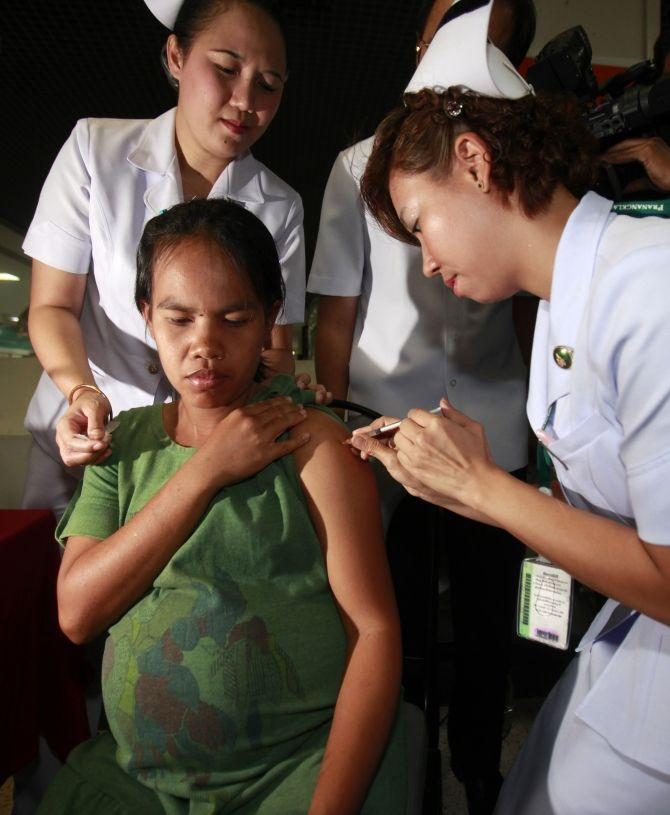H1N1 Vaccines Generally Safe for Pregnant Women, Studies Say

Even though flu season is supposedly during the winter, over the past few years all of the pandemics have taken place during the summer – H1N1 (swine flu) reached its peak during the summer of 2009 and H5N1 (bird flu) has begun to ravage Asia once again. Fortunately for pregnant women, who are at increased risk for becoming severely ill if they become exposed to the influenza virus, it appears that flu vaccines are safe.
Two new studies have emerged on the matter, but studying the H1N1 vaccine that was given in 2009, and both were published in the Journal of American Medicine. The first study examined the flu vaccine in Denmark. Researchers examined 53,432 infants for fetal abnormalities such as major birth defects, premature births, and small birth weight.
Infants were not significantly more at risk for major birth defects (5.5 percent versus 4.5 percent), premature births (9.4 percent of infants who had been exposed to the vaccine during the first trimester, 4.6 to 7.3 percent of infants who had not been exposed and 4.6 percent for infants who had been exposed during the second or third trimester), or low birth weight (7.6 percent for infants who had been exposed to the vaccine during the first trimester, 9.4 to 9.9 percent for infants who had not been exposed, and 9.7 percent of infants exposed during the second or third trimester).
The second study was conducted in Canada, and is not as positive as its Denmark counterparts. In Quebec, Canada, an immunization campaign took place in the wake of the H1N1 scare, and 57 percent of residents received the vaccine. They found that pregnant women who had received the vaccine had a small but significantly elevated chance of giving birth to infants with Guillain-Barré Syndrome, which is characterized “by rapidly developing motor weakness and areflexia.”
The number of cases that could be attributed to the vaccine was 2 out of 1 million doses. But researchers also added, “It is likely that the benefits of immunization outweigh the risks.”
With H5N1 becoming increasingly problematic as a public health concern, these studies can allow pregnant women to breathe a little more easily.



























